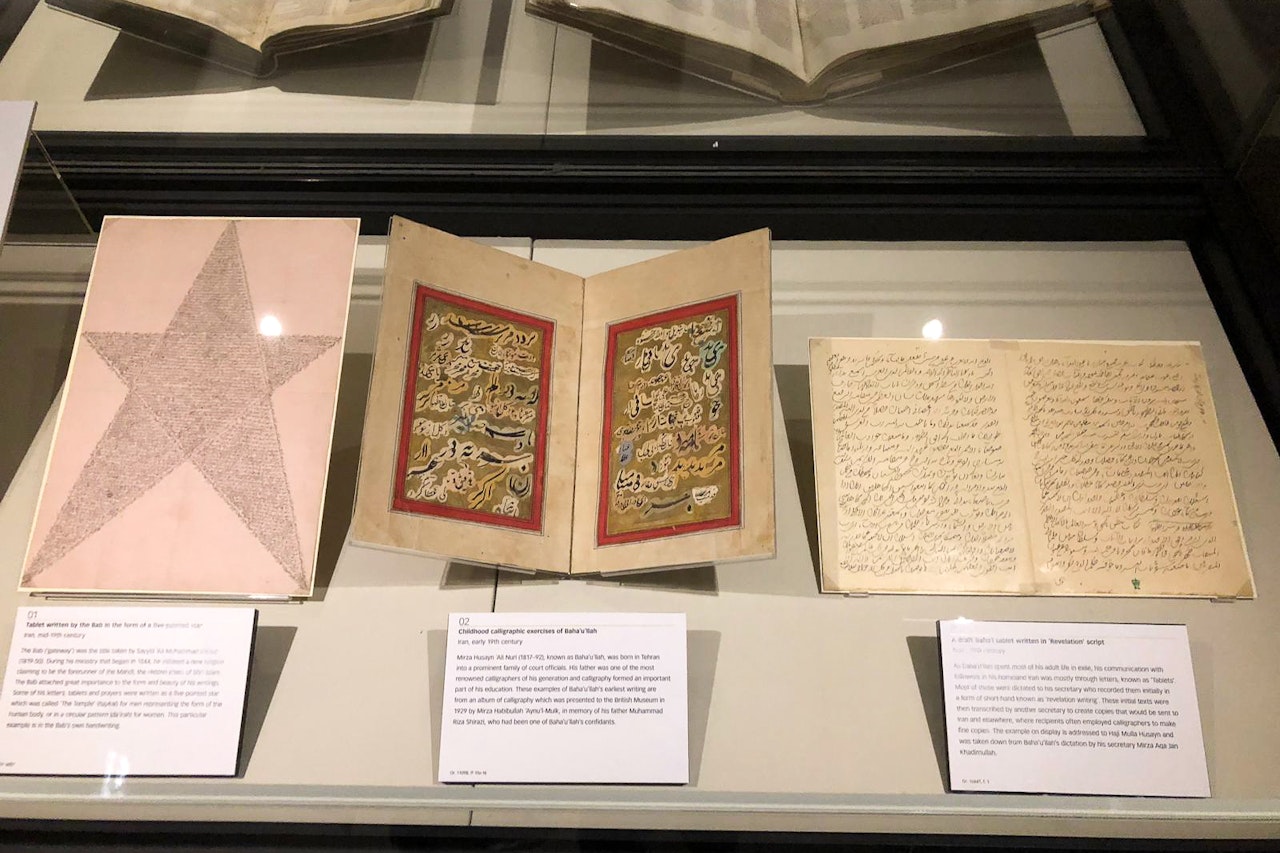British Library marks bicentenary, exhibits works of the Bab and Baha’u’llah
The Library is marking the bicentenary with various initiatives alongside its launch of a new website and exhibition displaying examples of the Faith’s original texts.

The Library is marking the bicentenary with various initiatives alongside its launch of a new website and exhibition displaying examples of the Faith’s original texts.

LONDON — The British Library is marking the bicentenary of the birth of the Bab with various initiatives alongside the launch of a new website, Discovering Sacred Texts, and companion exhibition, which feature examples of the Faith’s original texts.
Drawing from its vast collection, the library is displaying three rare and exquisite pieces in its Treasures Gallery: an original of the Bab’s own handwriting, in the shape of a five-pointed star; calligraphic exercises written by Baha’u’llah in His childhood; and an example of “Revelation Writing”, the form in which Baha’u’llah’s words were recorded at speed by His secretaries as they were revealed. These manuscripts will be displayed at the library for the next six months.
The exhibition opened in conjunction with the library’s new online educational resource which includes digitized selections of sacred texts from the world’s religions. “Through the project we have made the British Library’s significant collection of Baha’i manuscripts accessible online,” says Alex Whitfield, Learning and Digital Programmes Manager.
The new educational website “will provide an invaluable tool for students, teachers, lifelong learners, and anyone with an interest in the great world religions,” says Dr. Whitfield. The site includes pages introducing the Baha’i Faith, its sacred texts and Central Figures.
Coinciding with the launch of the site and exhibition is the publication of an article by Moojan Momen, specially commissioned by the library for the 200th anniversary of the birth of the Bab. Dr. Momen writes about the three original works on display at the exhibition, set in the context of a brief historical account of the life of the Bab.
To further mark the bicentenary, the library invited actor and comedian Omid Djalili to stage his one-man show A Strange Bit of History recounting events surrounding the appearance of the Bab and Baha’u’llah. The four-day run of performances concluded this week.
Jon Fawcett, head of events at the British Library, saw the show 25 years ago and has never forgotten it. “It struck me as a brilliant piece of storytelling,” he says.
In the performance, Mr. Djalili plays 16 different roles. The main characters are an executioner and a camel driver. “The executioner represents the reaction of the authorities at the time of the Bab,” says Mr. Djalili, “while this lowly camel driver represents both the appeal of the Baha’i Faith to people from every stratum of society and, at the same time, the sense of expectation during the Bab’s time when, all over the world, people were spiritually searching.”
In the play Mr. Djalili also portrays five modern-day performance poets. “They in turn comment on what’s going on in the world, talking about their own search,” he says, “but they also convey the sense that we are living at a great time, when two Divine Messengers have appeared in the world.